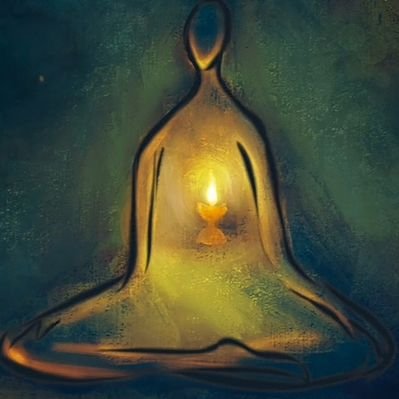Yogis, through years of dedicated spiritual practice, cultivate a unique energy within their bodies. People believe that this energy, often referred to as “grace,” permeates every aspect of their being, including their blood. Due to this unique spiritual energy, there is a belief that blood donation by Yogis should be avoided.
The argument states that their blood carries a special vibrational quality, imbued with the fruits of years of spiritual discipline. People should not share it indiscriminately. Donating such blood could potentially disrupt the balance of energies within the yogi’s system. It might also affect the recipient in unknown ways.
The Soul’s Journey and the Concept of Samadhi

After a yogi’s death, people believe that their soul embarks on a journey in the form of light. It has the potential to return to the body if necessary. This belief led to the tradition of not incinerating a yogi’s body. Instead, people preserve the body in a state known as samadhi. It is a meditative state where they believe the yogi has achieved a deep connection with the divine. The teachings of the Siddhars emphasize the sanctity of the yogi’s physical form even after death, rooting this practice in their wisdom.
Respecting the Legacy and Teachings of Yogis
The decision to preserve the body in samadhi is also a mark of respect for the yogi’s spiritual journey and achievements. It is believed that their body, having been a vessel of high spiritual energy, should be treated with reverence. People see the tradition of preserving the body rather than cremating it as a way to honor the yogi’s lifetime of spiritual practice and the divine energy they cultivated.
Conclusion
The beliefs surrounding blood donation by Yogis and the treatment of their bodies after death are deeply rooted in spiritual traditions and teachings. Whether one adheres to these practices or not, they reflect a profound respect for the spiritual accomplishments of yogis and a recognition of the unique energies they cultivate through their practices. Understanding and respecting these traditions can offer insight into the broader spiritual perspectives and cultural values that honor the sanctity of life and the spiritual journey.

